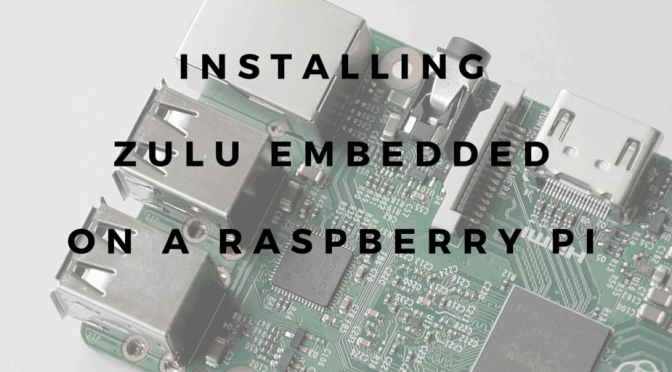I’ve recently been playing with the early-access version of Zulu Embedded for ARM32. Zulu is an open-source and certified build of OpenJDK. It is a great alternative to the JRE from Oracle as it does not requires you to pay any licenses, and it is also a huge improvement over the OpenJDK build you can get off the Debian repositories, which is not really optimized for ARM (and that’s a euphemism! :smile:).
Before giving you more information on my experience running Eclipse IoT projects on Zulu in subsequent blog posts, here’s a quick tip for anyone interested in installing an alternate JVM on a Raspberry Pi (or pretty much any Linux-based environment, really), and switching between default JVMs easily.
Download the Zulu JVM
At the time of writing this blog post, Zulu for ARM32 is only available through an early access program. Once you’ve downloaded your Zulu archive, you need to unpack it somewhere on your system (in a zulu folder within our home directory, in this example). From the command-line, and while in the directory where you’ve downloaded Zulu:
mkdir ~/zulu tar xvfpz ezre-1.8.0_60-8.9.0.6-cp1-eval-linux_aarch32.tar.gz -C ~/zulu
Add the Zulu JVM to the list of alternate VMs
The update-alternatives command-line utility allows to easily bind a given symbolic name to different commands. In our case, we want to update the symbolic link for /usr/bin/java
sudo update-alternatives --install /usr/bin/java java ~/zulu/ezre-1.8.0_60-8.9.0.7-cp3-eval-linux_aarch32/bin/java 100
Enable Zulu
sudo update-alternatives --config java
In the list of alternative Java version that’s proposed to you, select the one corresponding to Zulu by entering its ID and pressing
And voila! Zulu is now your default Java Virtual Machine, you can check by executing the following command:
java -version
openjdk version "1.8.0_60-Zulu-Embedded" OpenJDK Runtime Environment (build 1.8.0_60-Zulu-Embedded-EA3, profile compact1) OpenJDK Minimal VM (build 25.60-b23, mixed mode, Evaluation)
